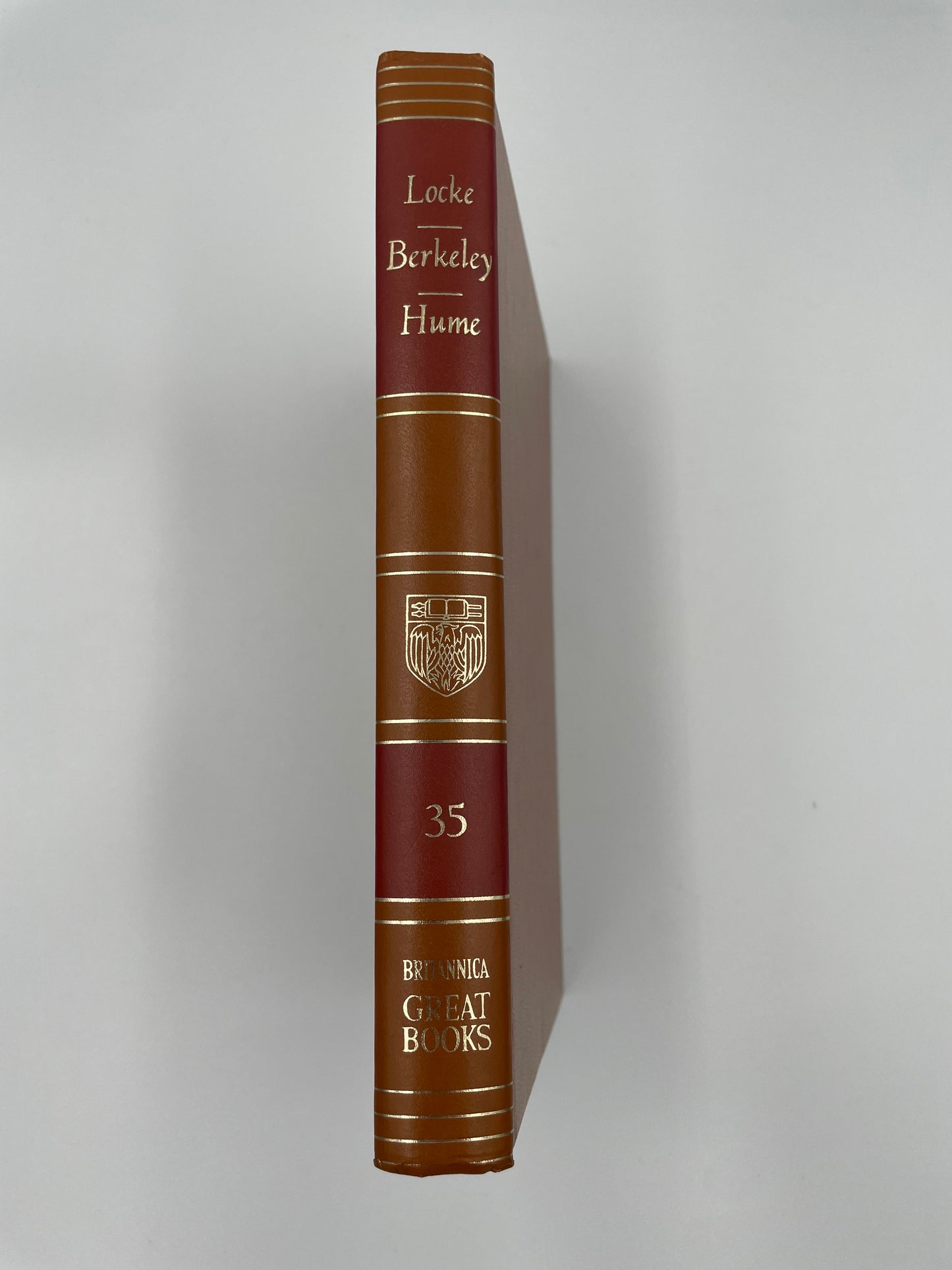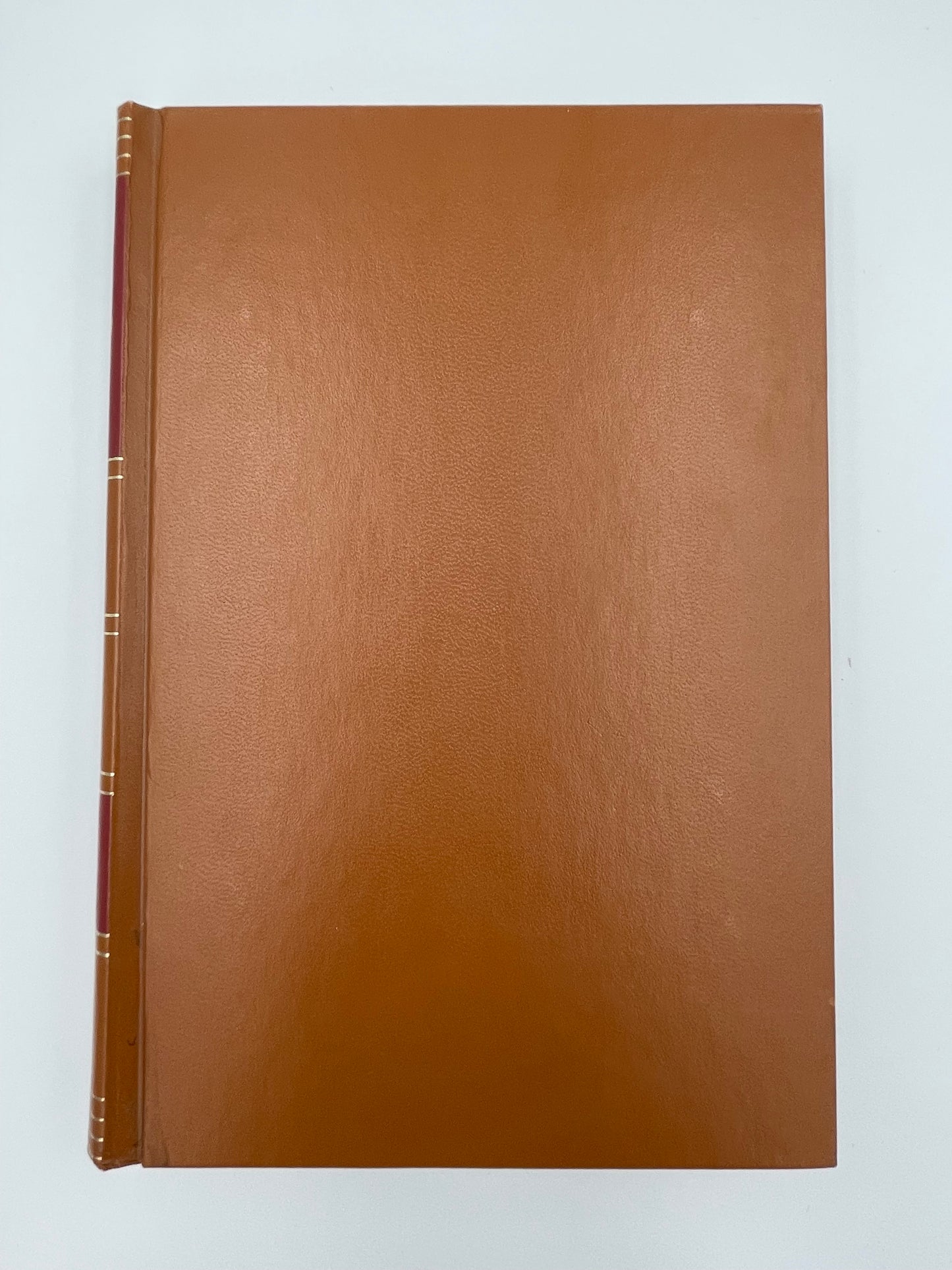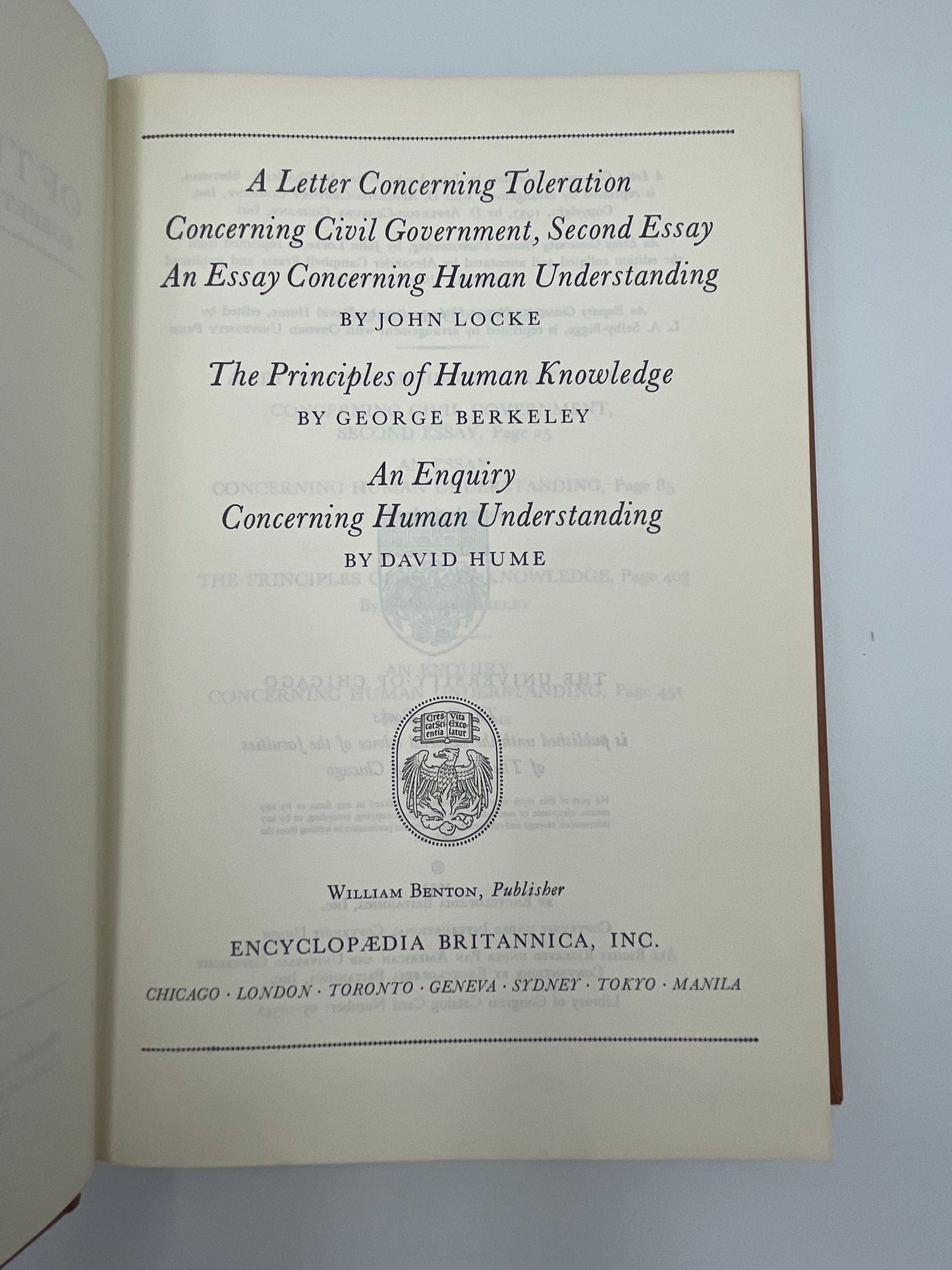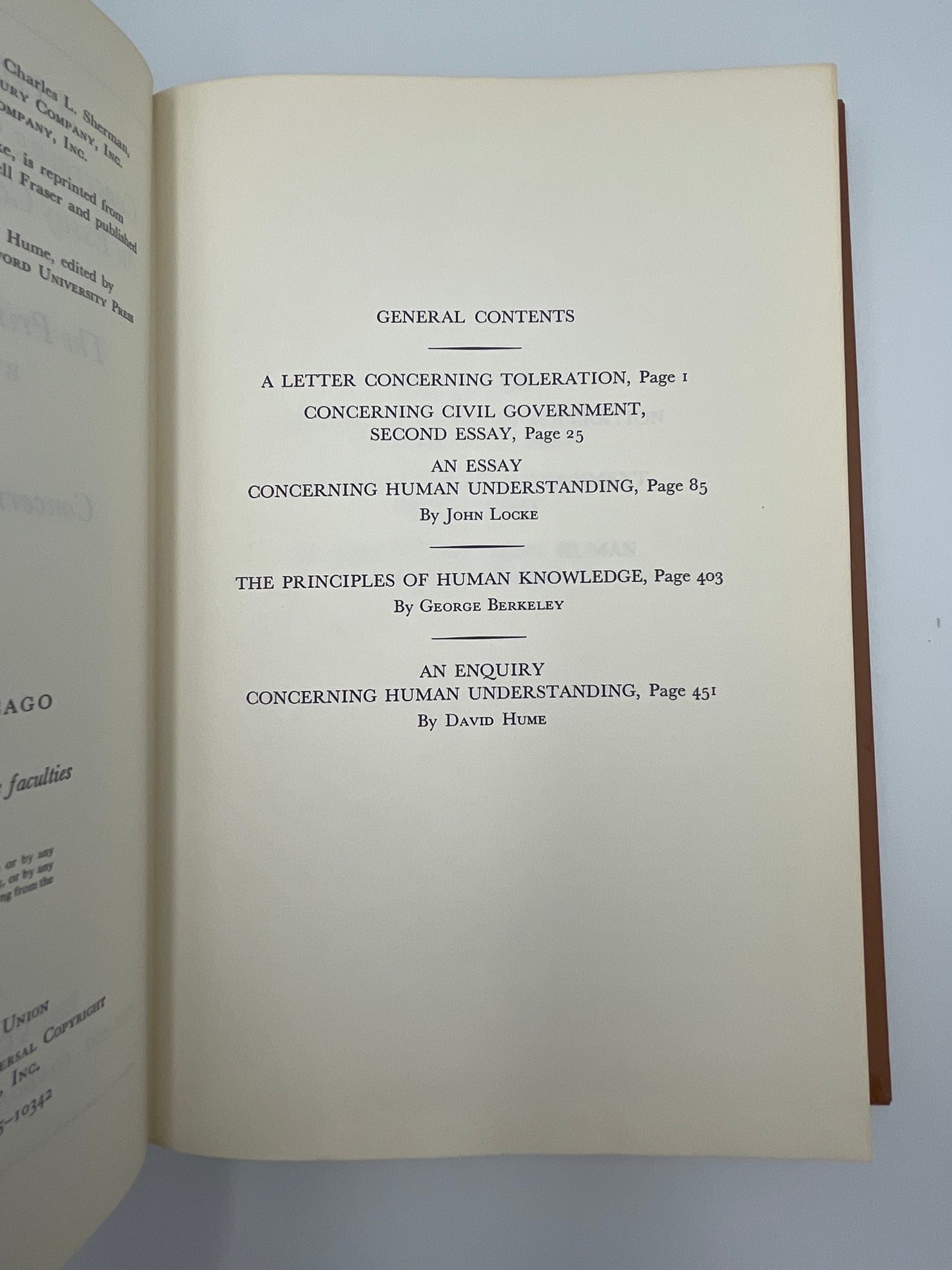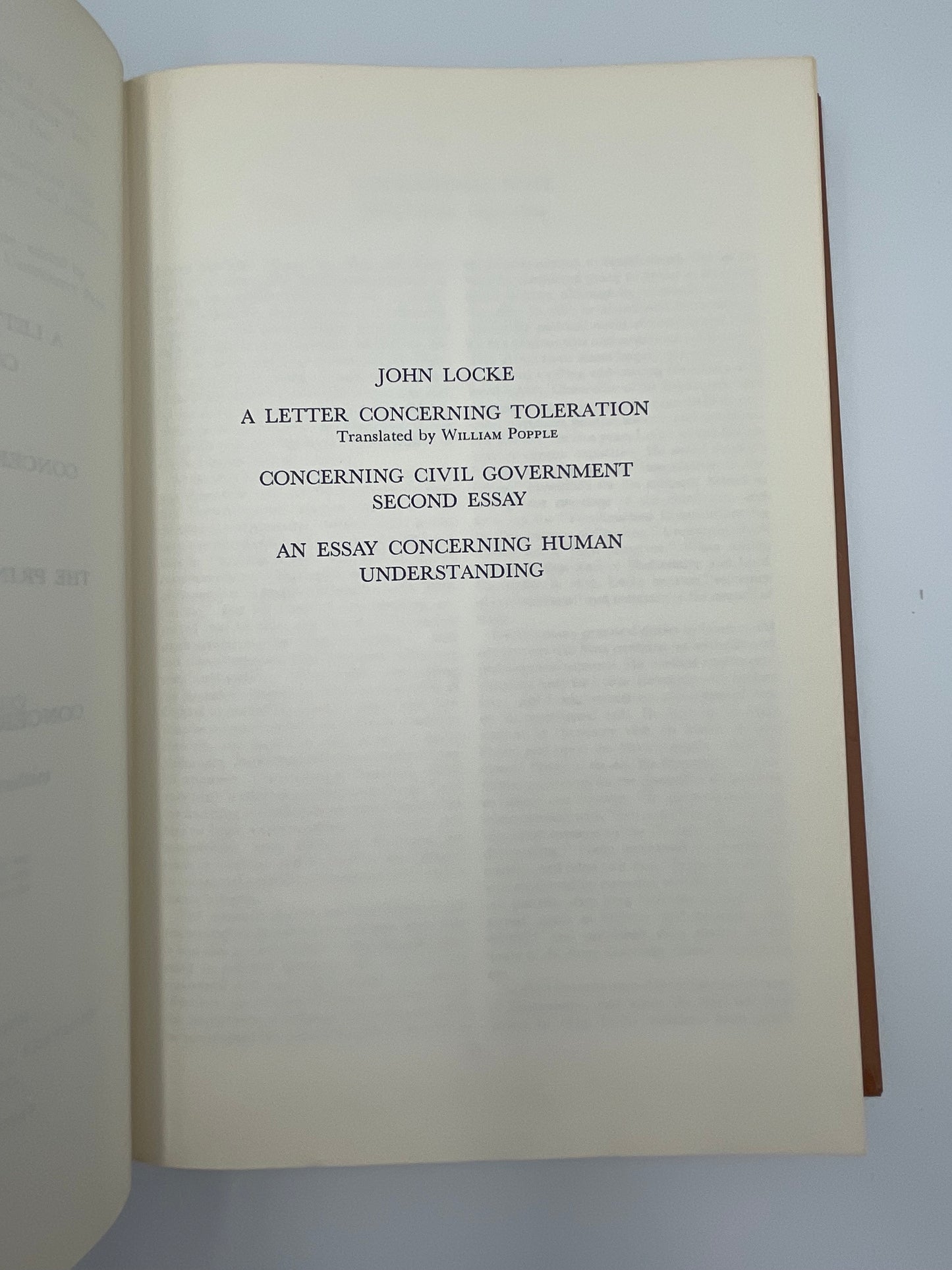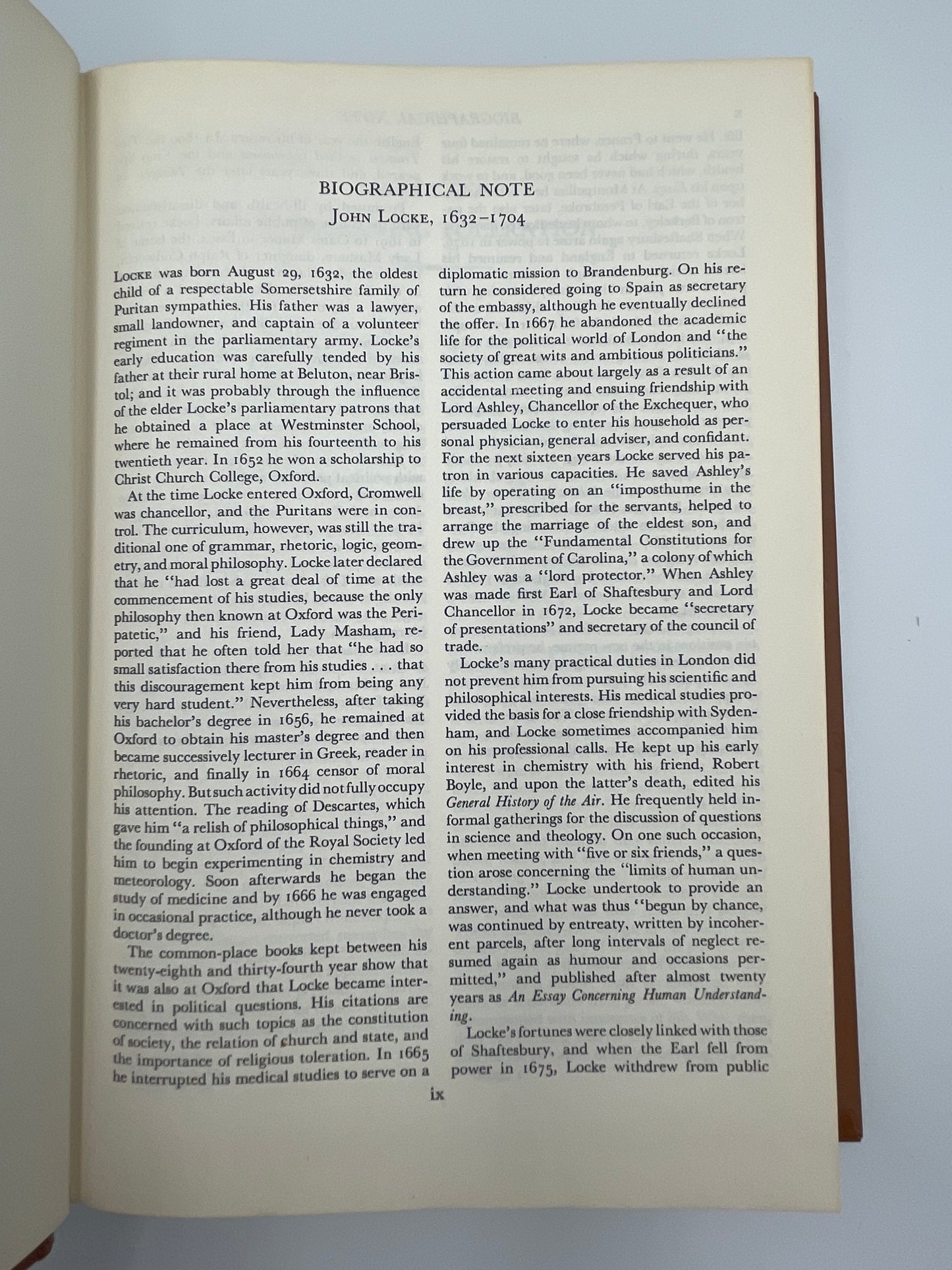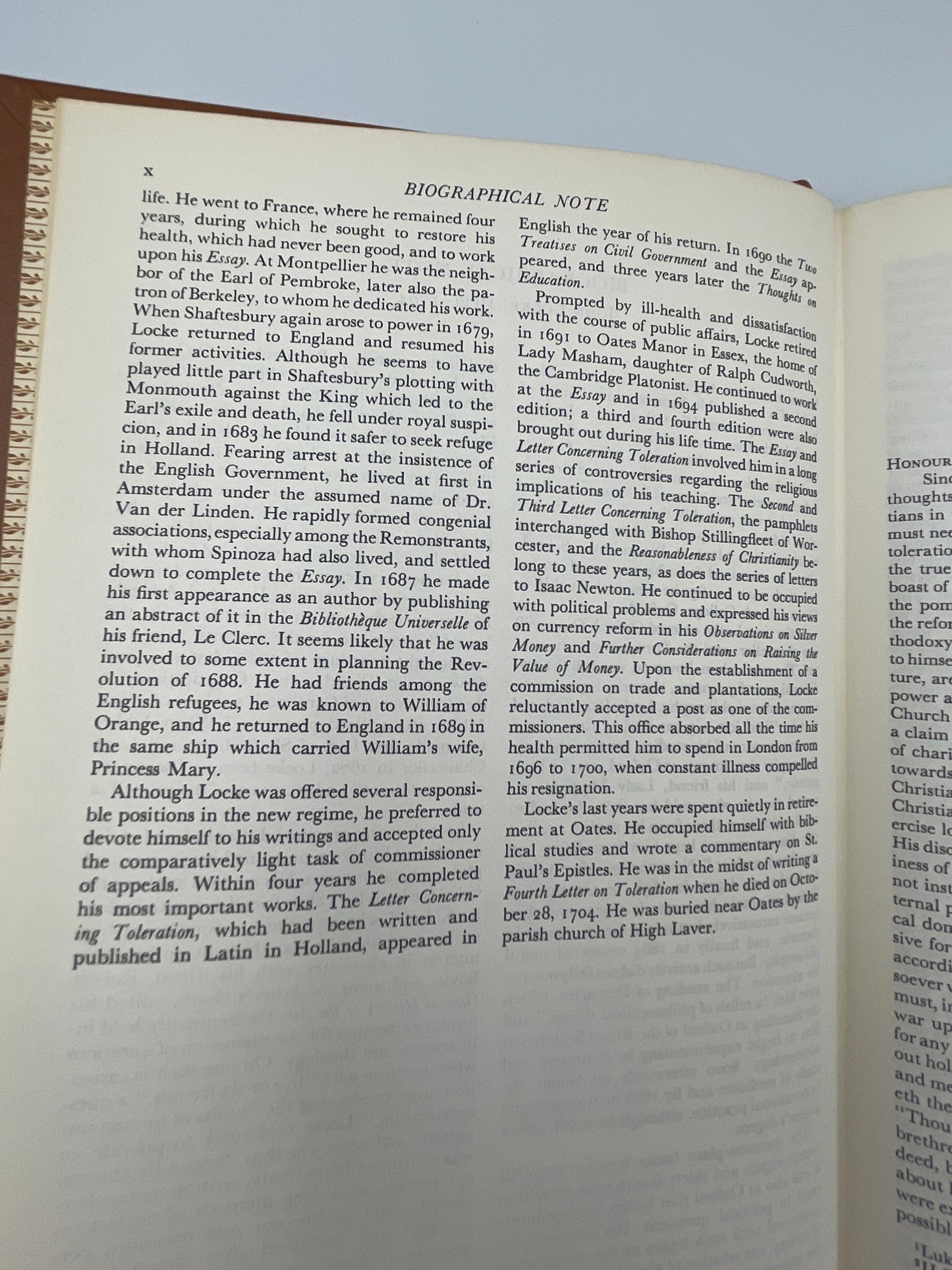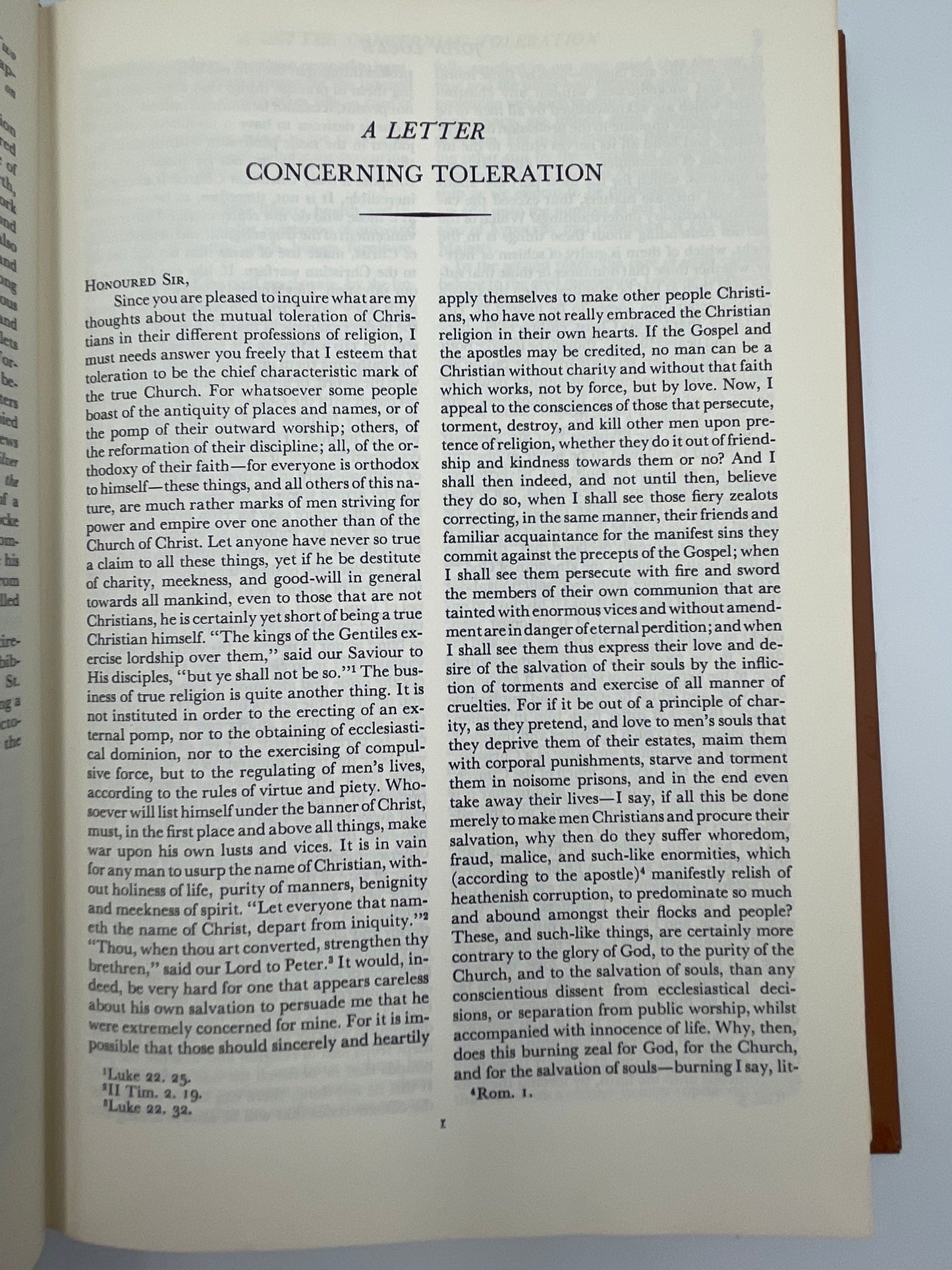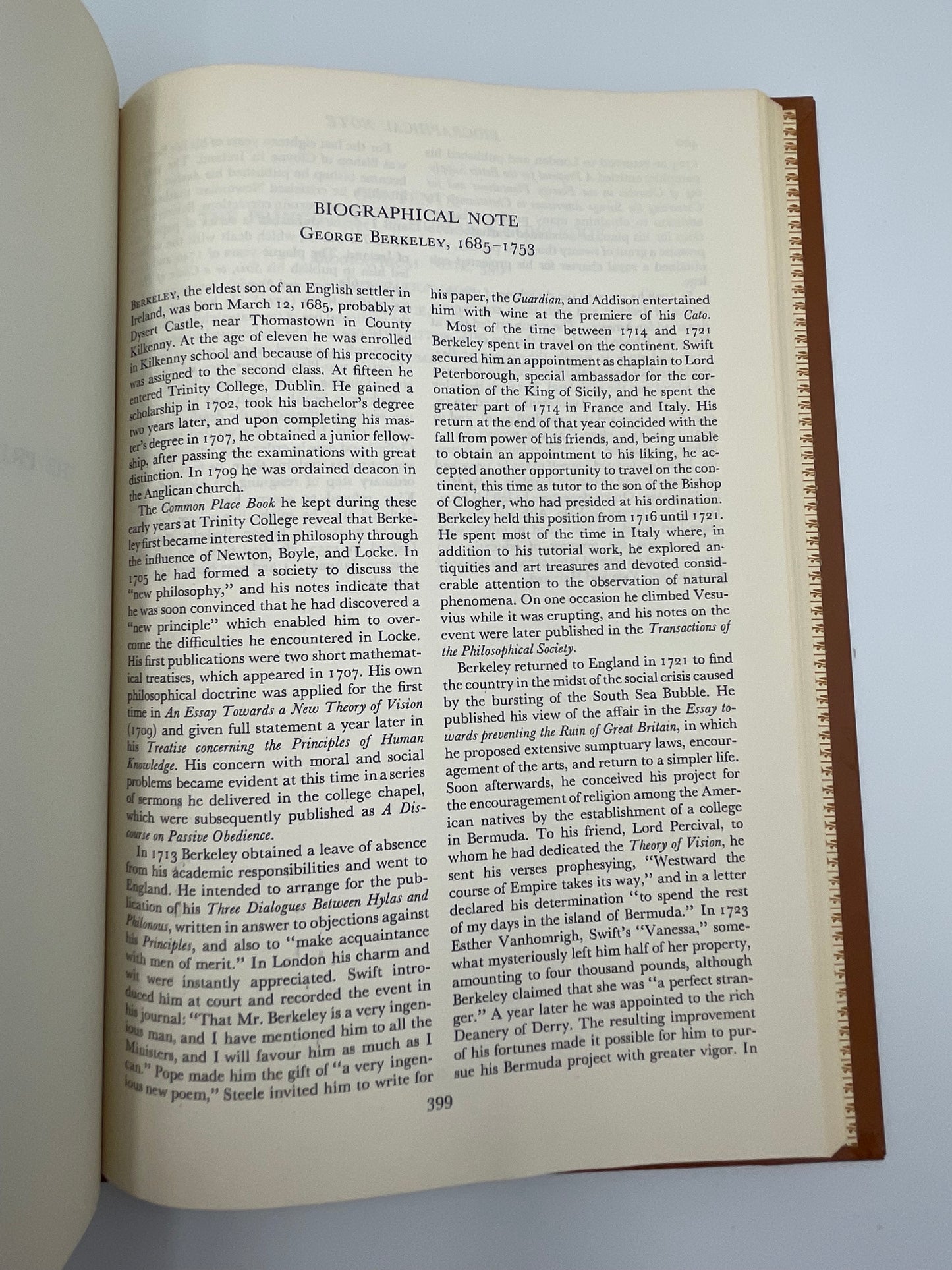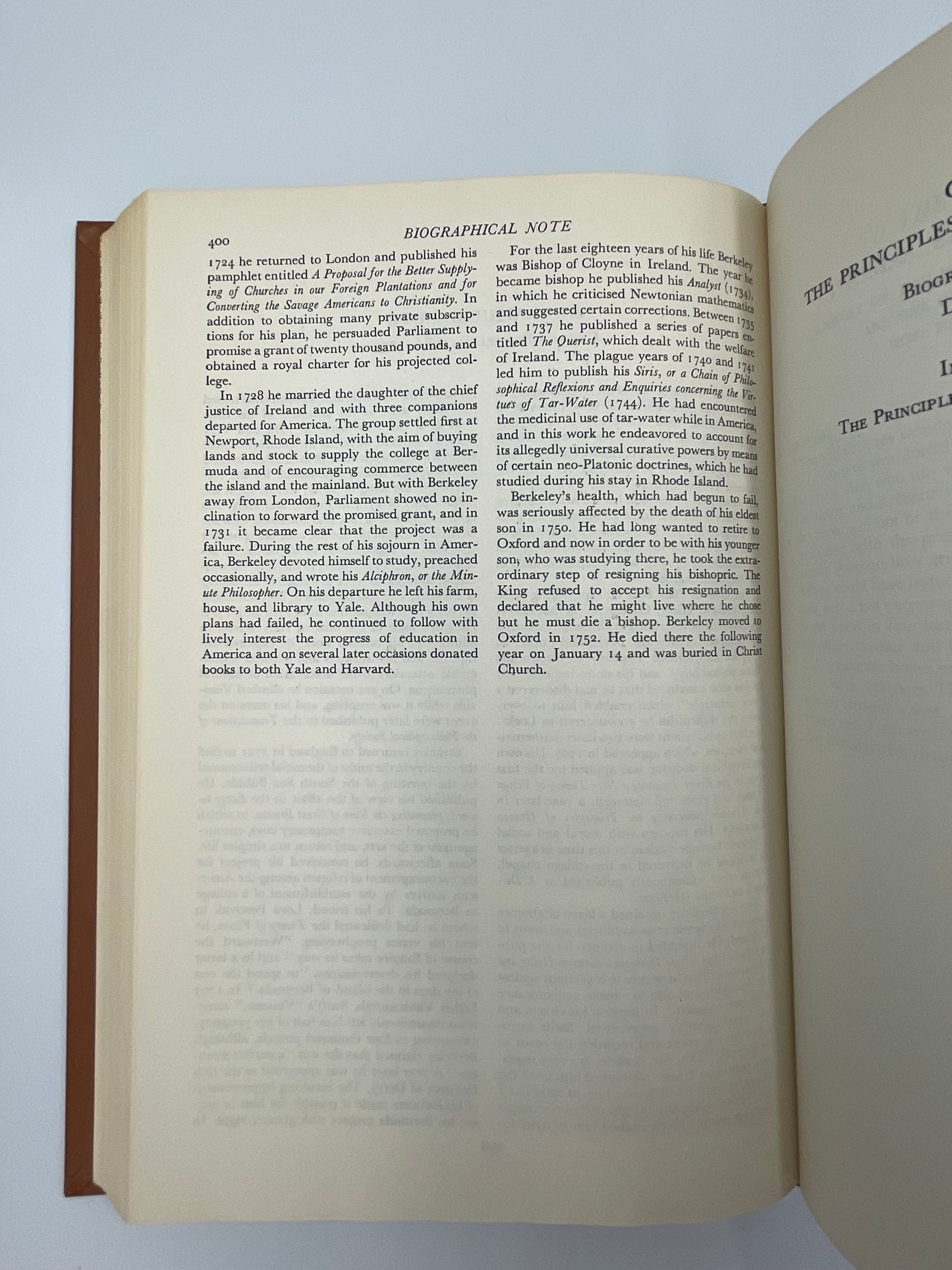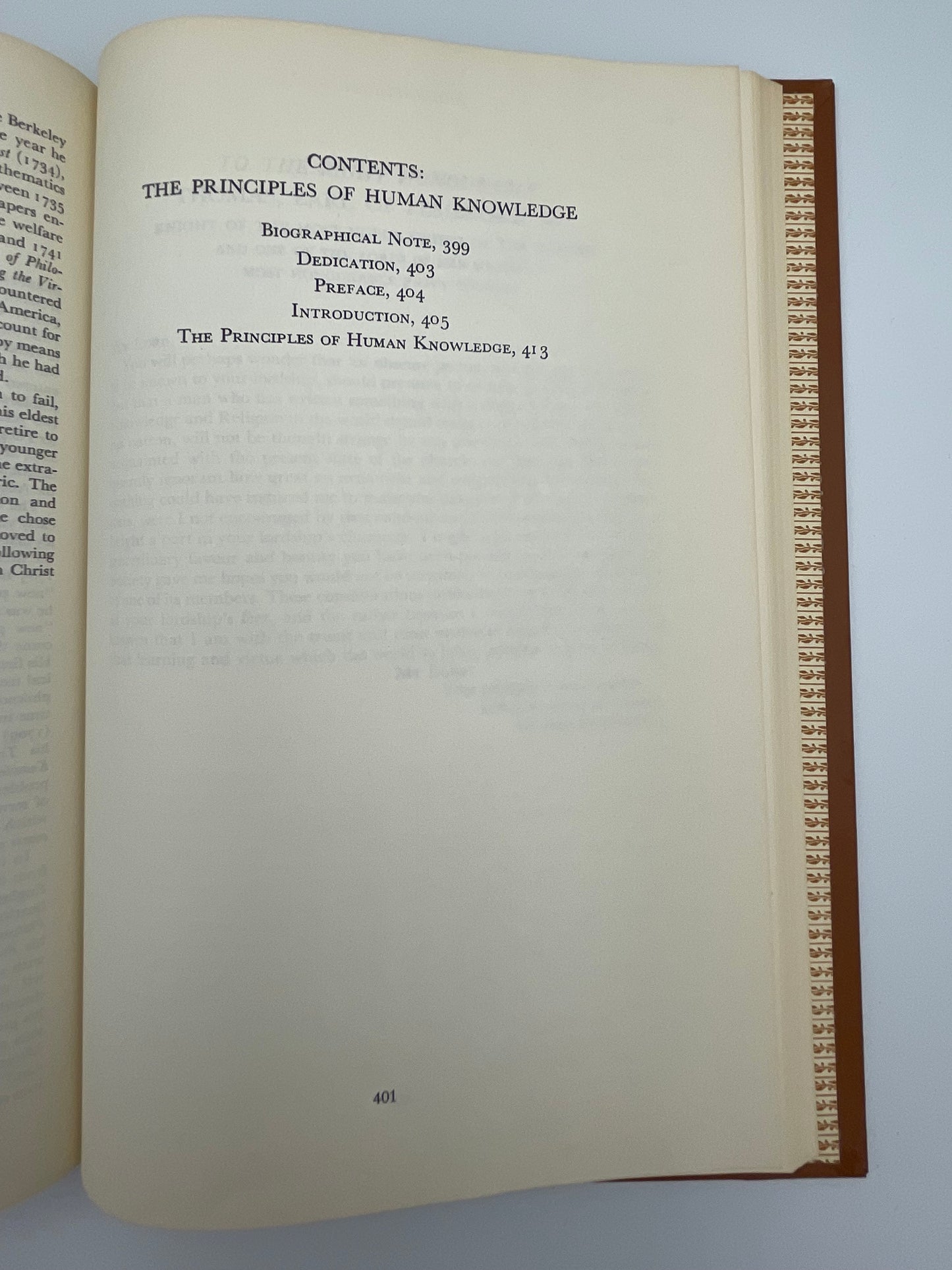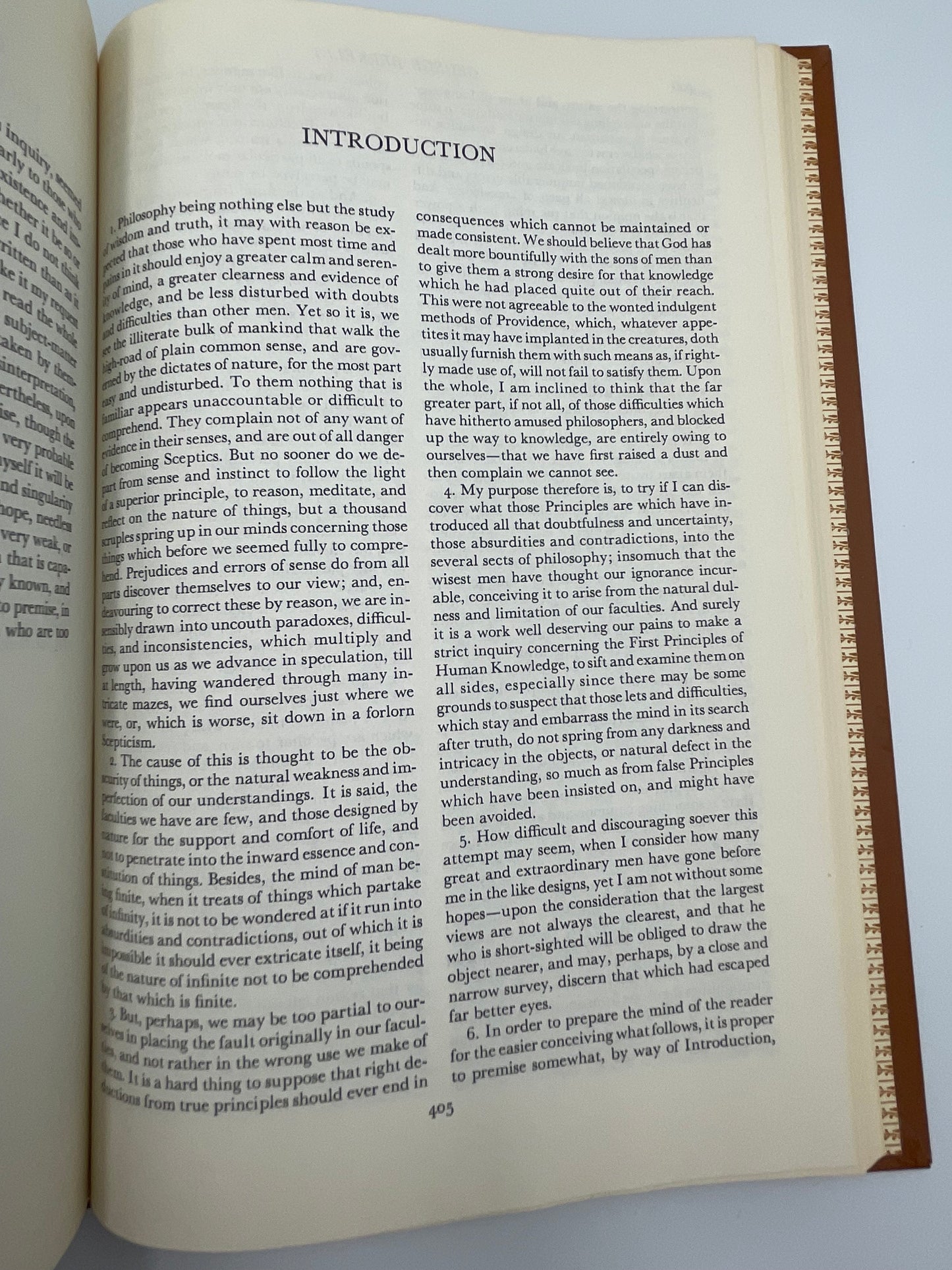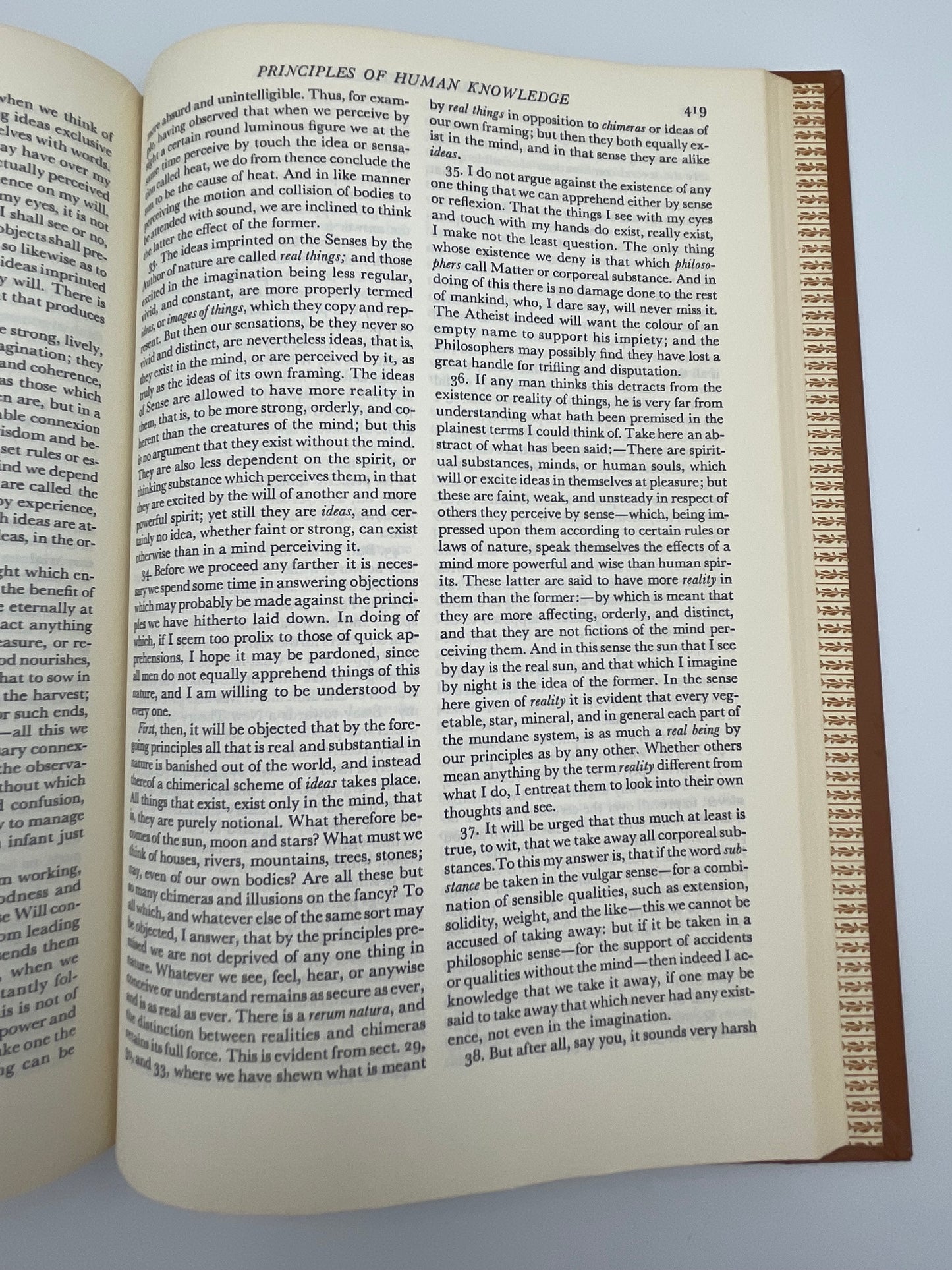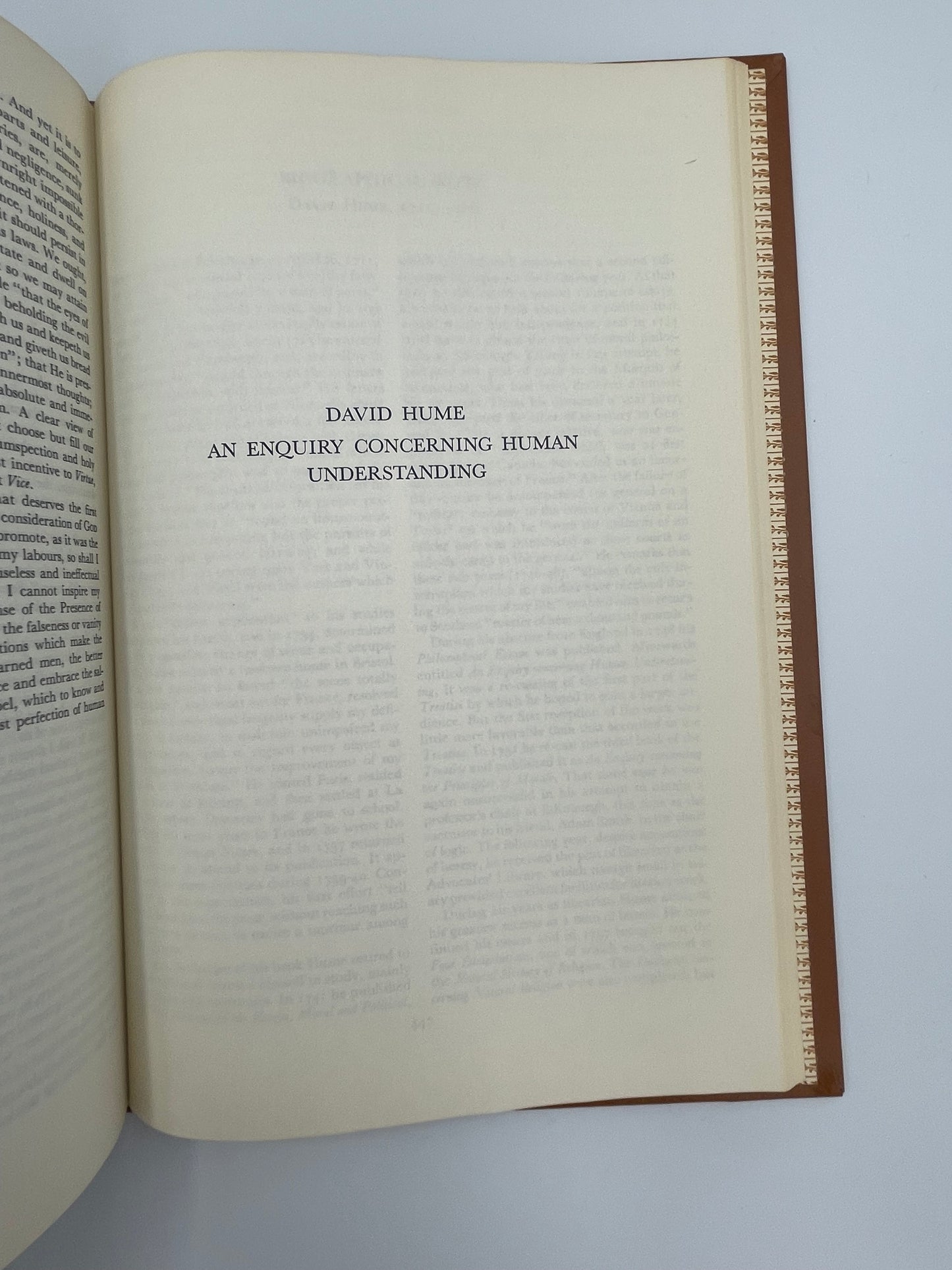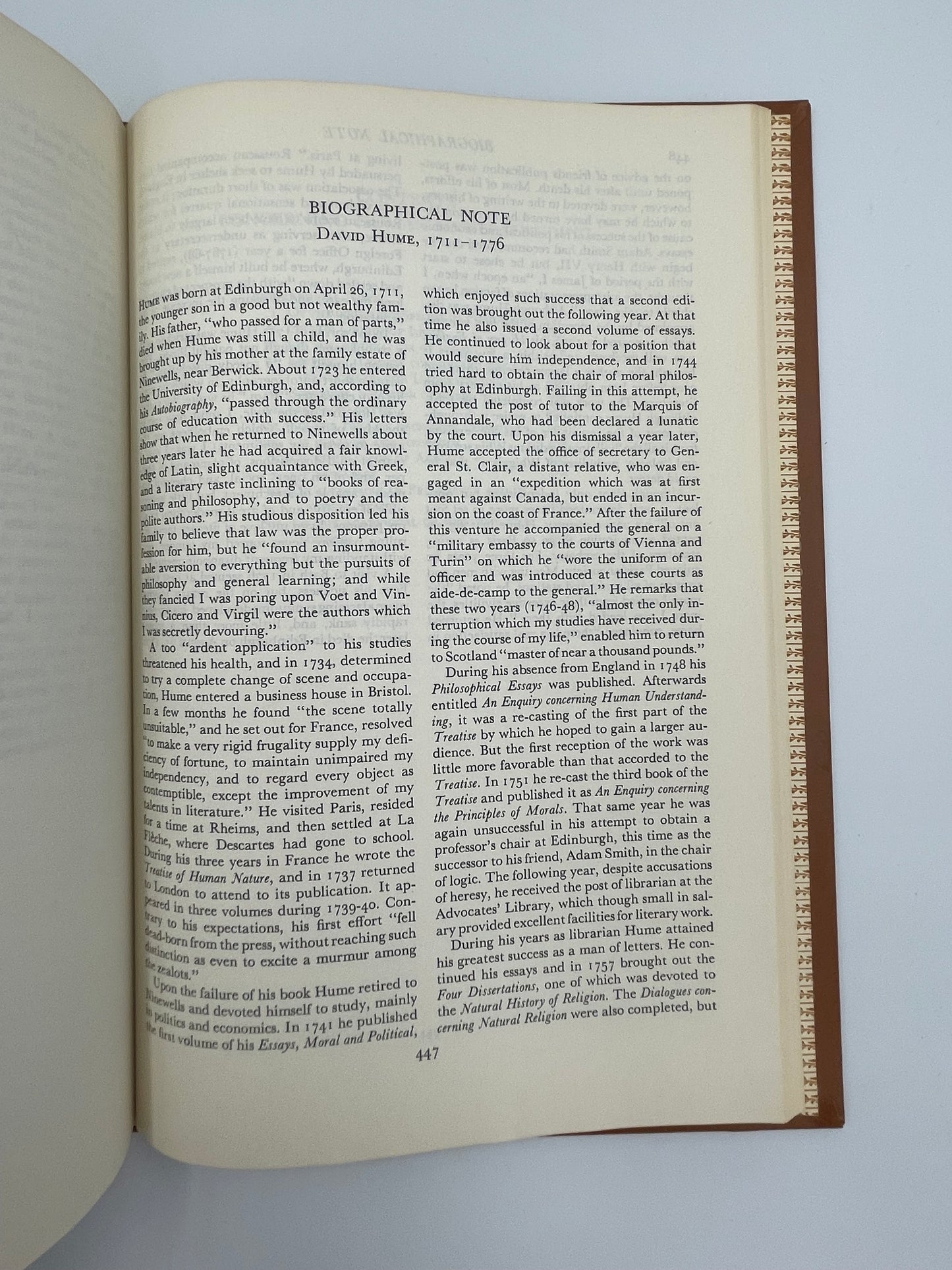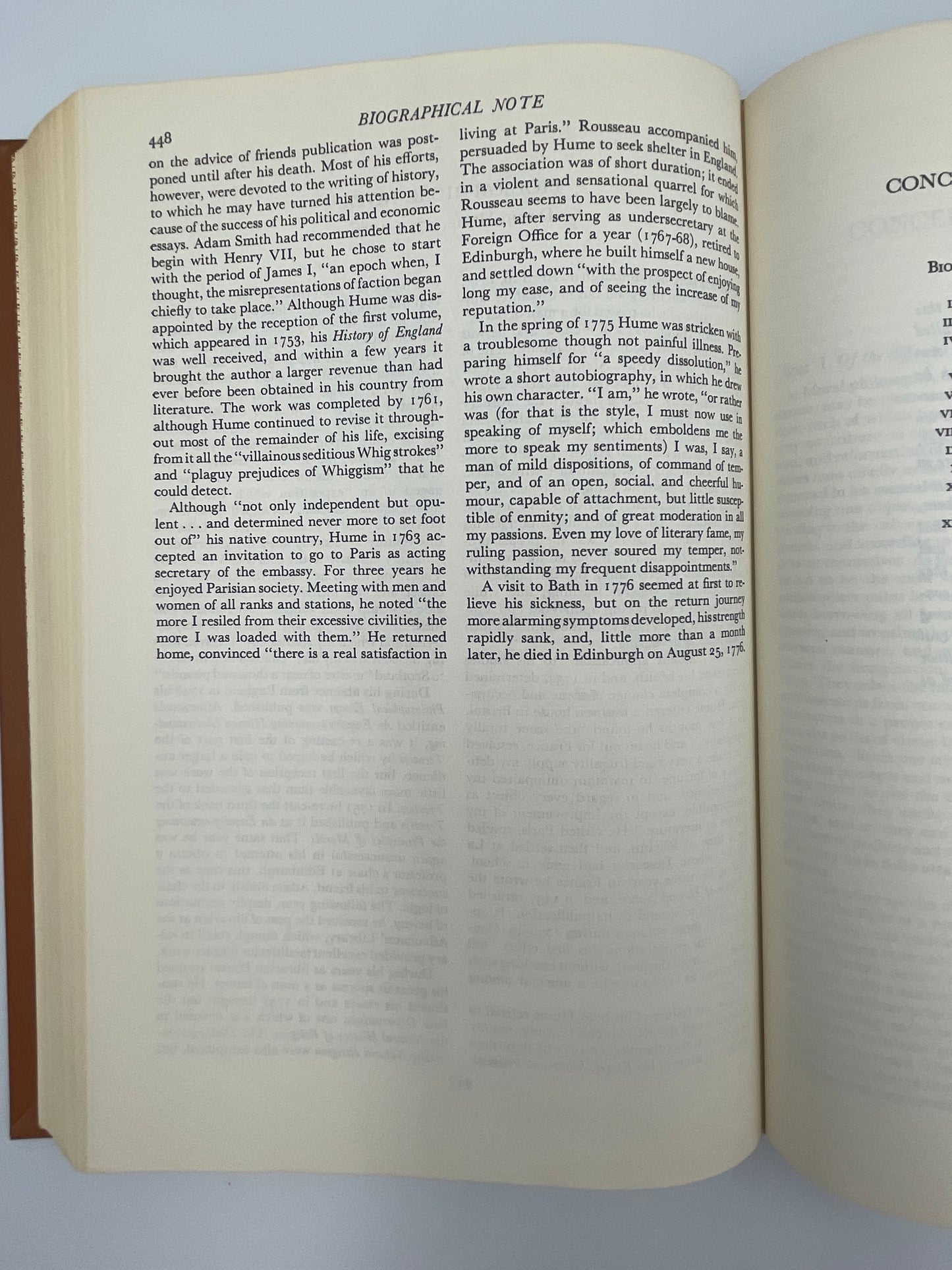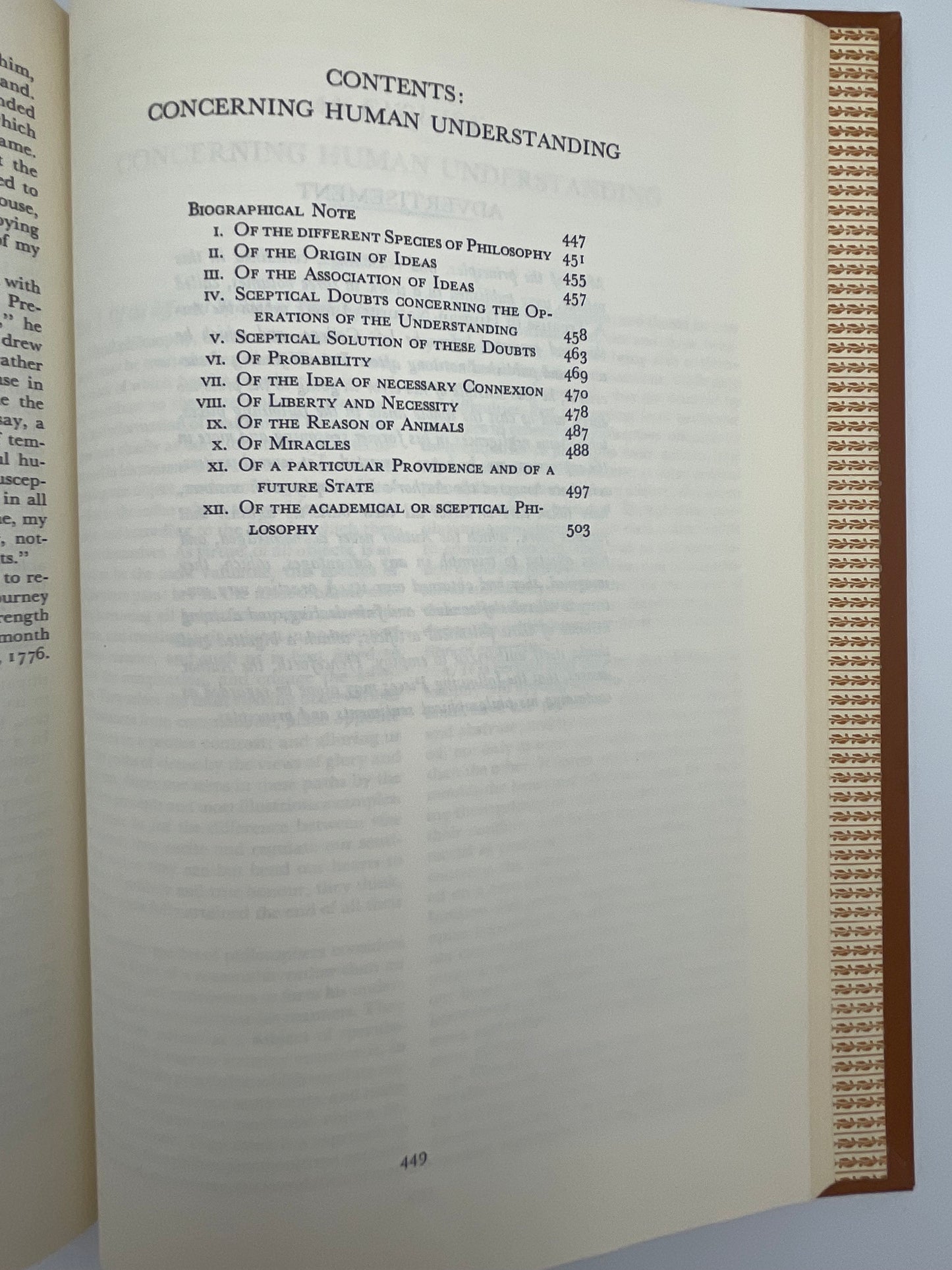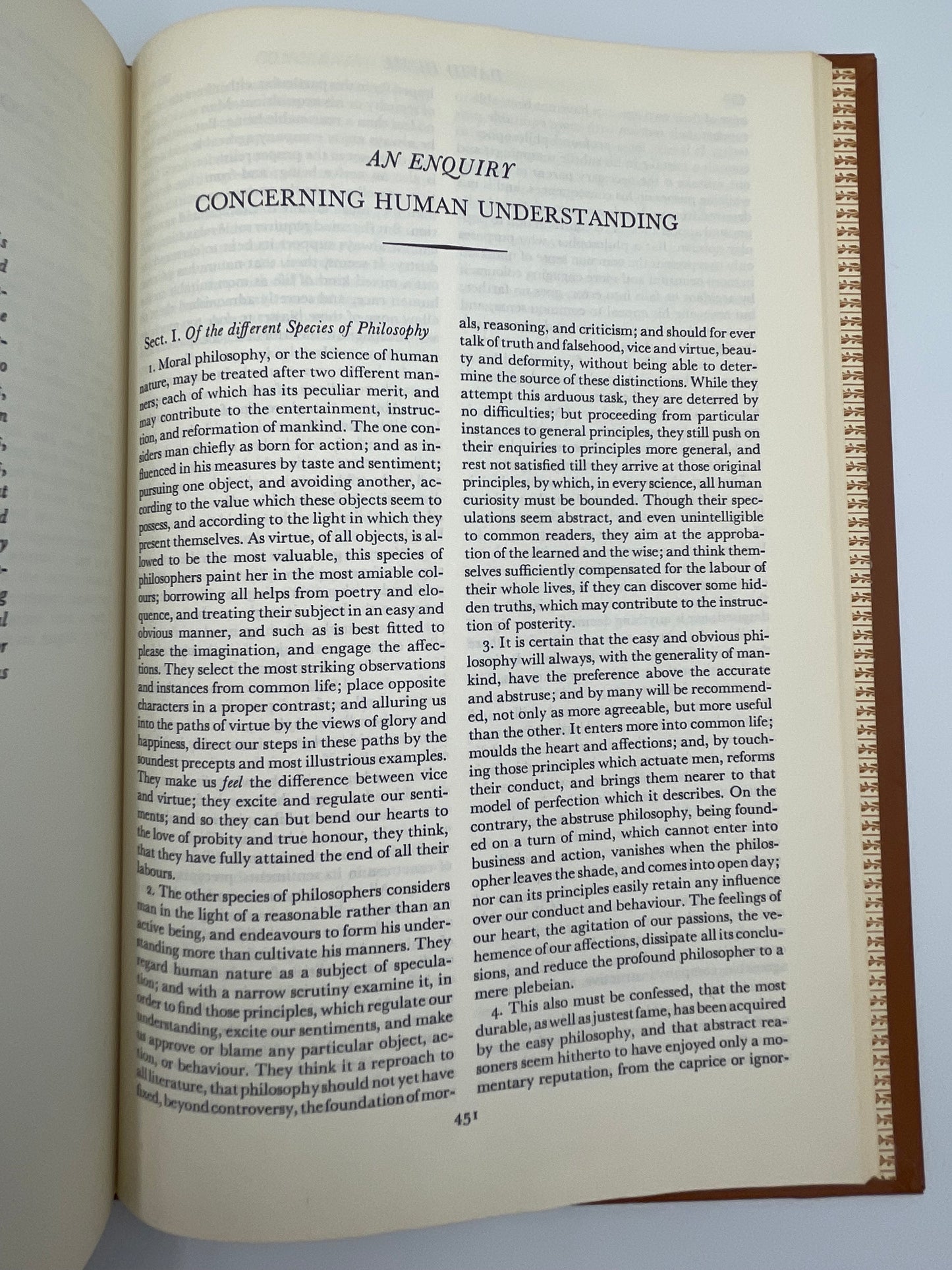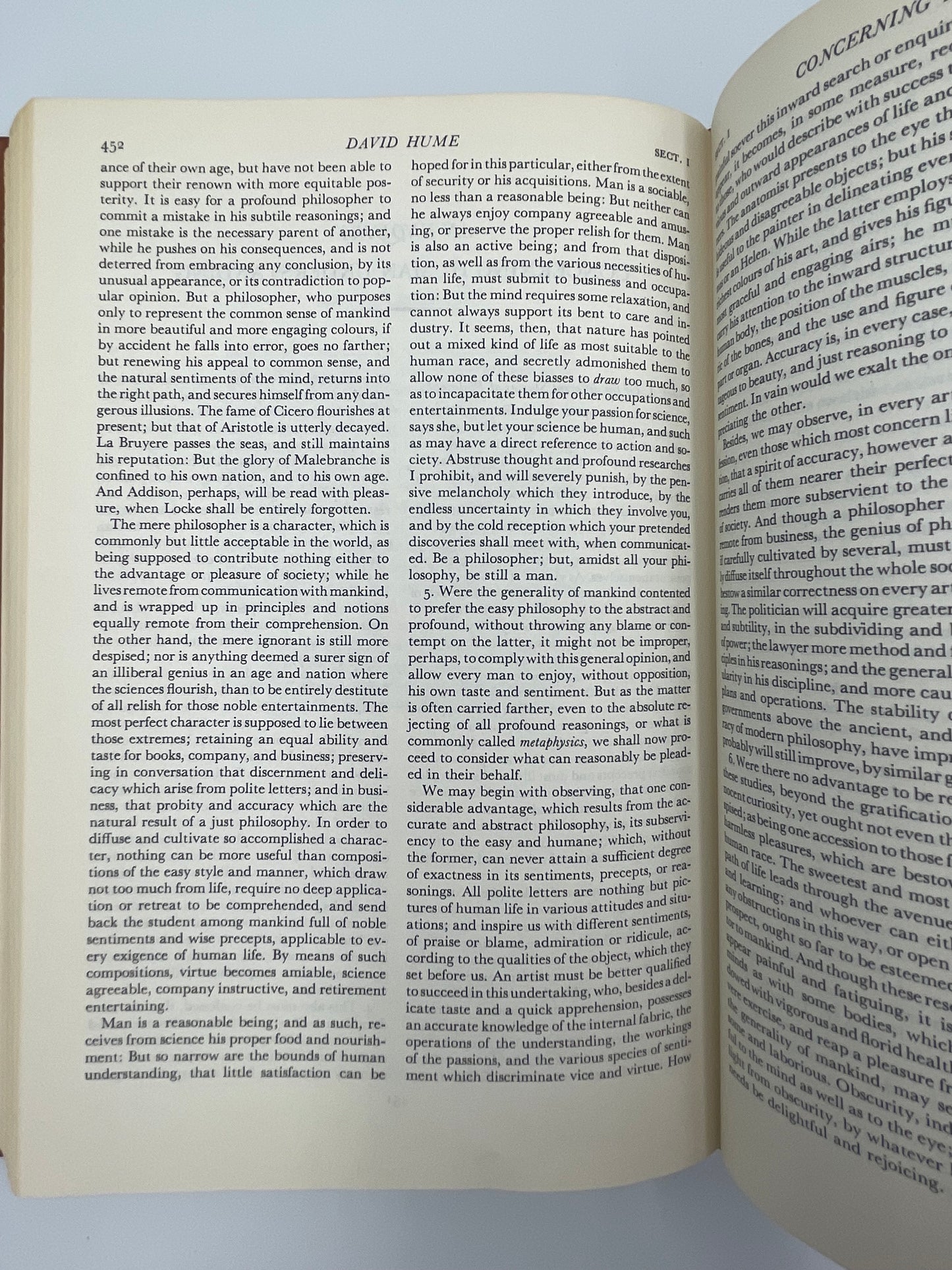Encyclopaedia Britannica
Locke. Burkeley. Hume. (Britannica: Great Books of the Western World)
Locke. Burkeley. Hume. (Britannica: Great Books of the Western World)
Couldn't load pickup availability
By John Locke: A Letter Concerning. Concerning Civil Government. Second Essay. An Essay Concerning Human Understanding.By George Berkeley: The Principles of Human Knowledge.By David Hume: An Enquiry Concerning Human Understanding. From the outstanding collection of one of the most sought out and respected series ever published by Encyclopedia Britannica. This is the 1st edition. 1952. This copy is leather bound, smyth sewn, with leather binding, and striped tail and head bands. The lettering on the spine is gilted. Condition: Good. (see all images). No markings inside. Edited with the advice of The University of Chicago. 731g, 17x24x2cm These works by John Locke, George Berkeley, and David Hume are foundational to modern philosophy, each contributing significantly to the fields of political theory, epistemology, and metaphysics. These works centre around philosophical discussions on knowledge, politics, and the nature of reality, and they continue to be central texts in the study of modern Western philosophy.John Locke. A Letter Concerning Toleration: Advocates for religious tolerance and the separation of church and state, arguing that civil government should not impose religious beliefs on individuals. This work is crucial in the development of liberal political theory and modern ideas about religious freedom and pluralism.wo Treatises of Government (often referred to as "Concerning Civil Government"): Establishes principles of political philosophy including the idea of natural rights (life, liberty, and property) and the social contract. Locke’s ideas on government by consent and the right of revolution against tyrannical rule have had a profound influence on democratic theory and modern constitutional design. An Essay Concerning Human Understanding: Explores the nature and limits of human knowledge, arguing that all knowledge is derived from experience. Locke’s theory of the mind as a "blank slate" (tabula rasa) was revolutionary, laying the groundwork for empiricism and significantly influencing later theories of knowledge and learning. George Berkeley: The Principles of Human Knowledge: Challenges materialism and argues for idealism, the view that reality consists only of minds and their ideas. Berkeley's philosophy contends that objects only exist as they are perceived, and he aims to refute the notion of material substance. This work has had a significant impact on the philosophy of perception and metaphysics.David Hume: An Enquiry Concerning Human Understanding: Examines the nature of human cognition, causality, and the limits of human understanding. Hume is known for his empirical skepticism and questioning of causation, arguing that human knowledge is limited to impressions and their associations. His work critically examines the basis of knowledge and the validity of scientific reasoning, influencing both empirical philosophy and the philosophy of science.
Share
